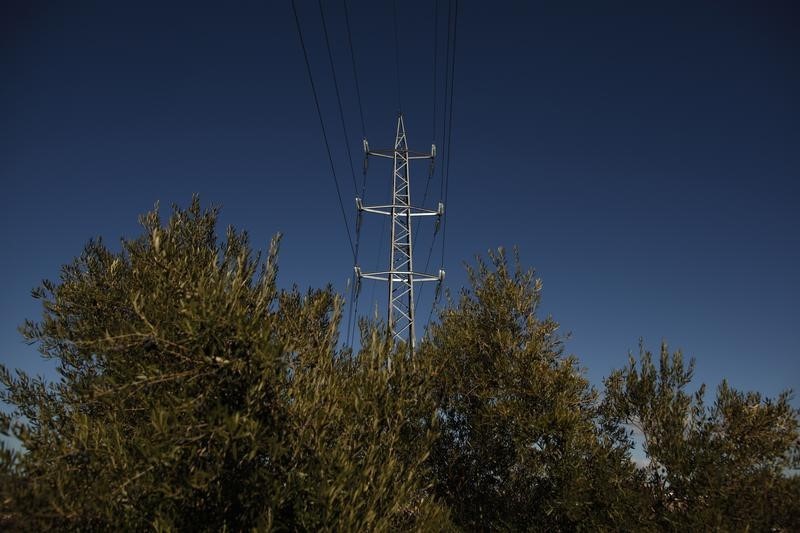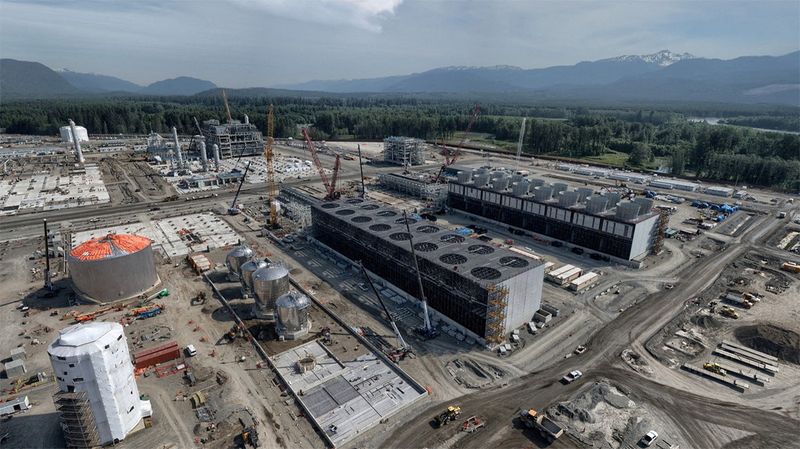British Columbia strengthens power plan but faces major challenges with electrifying LNG By Reuters


© Reuters. FILE PHOTO: LNG Canada field construction activities progress in Kitimat, Canada, September 2022. LNG Canada/Handout/File Photo via REUTERS
(This Jan. 19 story has been corrected in paragraph 17 to correct the source relationship to Canadian Clean Energy rather than B.C. Clean Energy.)
rod nickel
WINNIPEG, Manitoba (Reuters) – British Columbia has stepped up its C$36 billion ($26.7 billion) plan to expand its power grid over the next decade, but Canada’s Pacific coast region remains home to the largest liquefied natural gas (LNG) project. It will not provide the hydroelectric power needed. Avoid high emissions.
Because of the lengthy regulatory process, the critical northern transmission line expansion won’t be ready until several years after LNG plants begin operating and drought is already holding back power generation in British Columbia (BC).
B.C. increased its grid spending plans by 50 per cent on Tuesday as industry demand for renewable hydropower surges and the province shifts to electric vehicles and electric heating for buildings.
“It’s a huge challenge to meet all the potential demand for electricity. It’s difficult,” said Barry Penner, former BC environment minister and now chair of the Energy Futures Initiative, a program of advocacy group Resource Works.
Providing hydropower to LNG projects, including the Shell-led LNG Canada, is critical to the province’s and Canada’s goal of significantly reducing emissions by 2030. The LNG export facility will capitalize on lucrative maritime demand for Canadian natural gas.
LNG Canada, which is 90 per cent complete, will operate the 14 million tonnes per year facility on high-emission natural gas, complicating Canada’s net-zero goals. The company, which is considering a second phase that could convert to grid power once it becomes available, said in a statement Thursday that it was encouraged by the government’s efforts to promote power expansion.
A key part of B.C.’s grid plan for Canadian LNG is a $3 billion project to expand the North West transmission line. BC Hydro CEO Chris O’Riley said construction could take up to 10 years because of the need for agreements and permits with First Nations.
“We’re all committed to getting these projects built as quickly as possible, and we want them to run on electricity. That’s our goal,” O’Riley said in an interview.
BC Hydro’s schedule says the transmission line won’t be expanded until the early 2030s, after LNG Canada and competing proposals Ksi Lisims LNG and Cedar LNG come online.
indigenous support
O’Riley said the capacitor station project in northwestern B.C. will provide enough power for Cedar LNG, a project by the Haisla Nation and Pembina Pipeline (NYSE:). Ksi Lisims plans to start operations as early as 2028.
Indigenous support for northwest transmission lines could accelerate regulatory timeline. K’uul Power, a consortium of 11 First Nations, is negotiating to purchase a 50 per cent stake in the project from BC Hydro.
“If you’re in charge, it’s okay to move quickly because you can protect your own interests,” said K’uul CEO Alex Grzybowski. “An expedited process is fully on the table.”
B.C. has formed a task force to accelerate the permitting of clean energy projects.
Like Quebec, where the government-owned Hydro Quebec utility announced its own long-term plan for grid expansion in November, B.C. also relies on hydropower for most of its power. Its resources and the province’s coastal ports made the province the center of Canada’s early LNG industry. In contrast, neighboring Alberta relies on high-emissions natural gas to generate electricity.
Drought presents additional challenges for B.C. BC Hydro has recorded a record revenue of one-fifth of its 2023 electricity needs as drought disrupts hydropower generation.
BC Hydro plans to add wind and solar power to help combat drought risks, O’Riley said.
But Evan Pivnick, program manager at Clean Energy Canada, said B.C. may still lack enough power to satisfy all industries, from LNG to critical mineral mining and hydrogen proposals.
“One of the key questions BC must face is which industries it is prioritizing.” Pivnick said.
($1 = 1.3511 Canadian Dollars)



